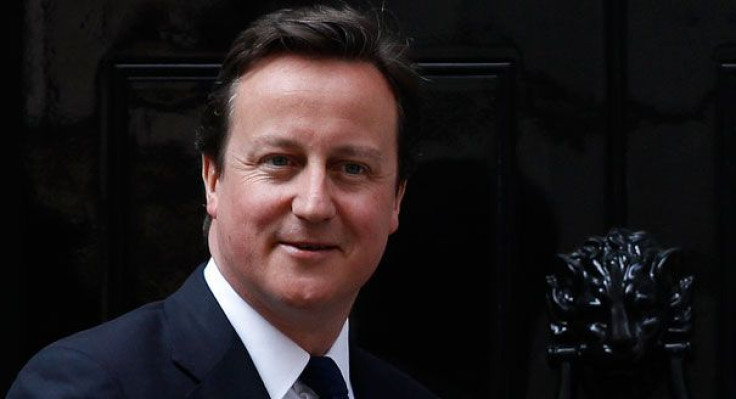EU Budget Talks: A Web Of Different Interests

European leaders are meeting this week in Brussels to map out the 2014-2020 European Union budget, which could come in at €940billion ($1.2 trillion) -- which would be lower than the previous seven-year budget of €994 billion, but higher than what Britain is calling for.
British Prime Minister David Cameron met Thursday with EU President Herman Van Rompuy to express his country’s concern over proposed increases in spending in certain areas and to defend Britain’s special annual rebate worth about €4 billion.
The complex budget talks encompass an array of different interests, pitting countries that receive the most money in the form of agricultural subsidies against those that pay more into the budget than they receive. Wealthier members states, such as Sweden and The Netherlands, are calling for greater austerity and caps on state contributions, while states that are not as well developed, including Spain, which is facing a maelstrom of internal fiscal troubles, worry that their EU funding will take a hit.
The British rebate is a particular point of contention that has France and Britain roiling at each other. The rebate, which has been in effect since 1984, reimburses Britain every year for overpayment into Common Agricultural Policy expenditures, which makes up nearly half of the EU’s budget. Because Britain has a relatively small agricultural sector compared with other EU states, especially France, Italy and Spain, any cuts to the rebate would increase Britain’s contribution to the budget. France is grumbling that it pays the largest share of this rebate, about 25 percent.
Germany -- already the largest net contributor to the EU budget -- is concerned that it will end up paying more for less, and it would like assurances that it won’t be required to fork over even more in the coming years.
"We can save tens of billions compared with what is on the table,” one British official told The Guardian, suggesting that the solution lies in more austerity measures rather than finding other sources of revenue. Britain is the EU’s second-largest net contributor to the EU budget after Germany.
The proposed budget was whittled down from €1,053 billion to €973 billion, but talks this week could see the final settlement at €940billion. This coming week, all eyes will be on Cameron to see if he can succeed in negotiating further cuts while protecting Britain’s rebate. British conservatives there, who have never been friendly to the idea of British integration with the continent, are saying Cameron should tell France to shove it.
French President François Hollande has expressed complete opposition to the €60 billion cut to the Common Agricultural Policy. Spanish Prime Minister Mariano Rajoy opposes any cuts that would adversely affect Spain’s share of structural funding.
Britain is calling for the EU to match Britain's 25 percent to 30 percent reductions to its administrative budget, according to The Guardian. The current proposal sees the EU administrative budget rising from €56 billion to €63 billion. London is also calling for a smaller increase to the Connecting Europe project, which is aimed at improving the region's transport links, energy grids and high-speed digital connectivity. Under the current proposal, that budget will rise from €8 billion to €36 billion, but Britain instead would like to see it rise to €16 billion.
So far, Britain, Sweden and The Netherlands are calling for steep cuts, according to the Daily Mail. Germany, Austria, Finland and France want a cap on annual contributions from individual states, with France calling for a cut to Britain's agricultural subsidy rebate. Fifteen member states, led by Poland, would like to see the overall budget increase rather than decrease.
© Copyright IBTimes 2024. All rights reserved.












